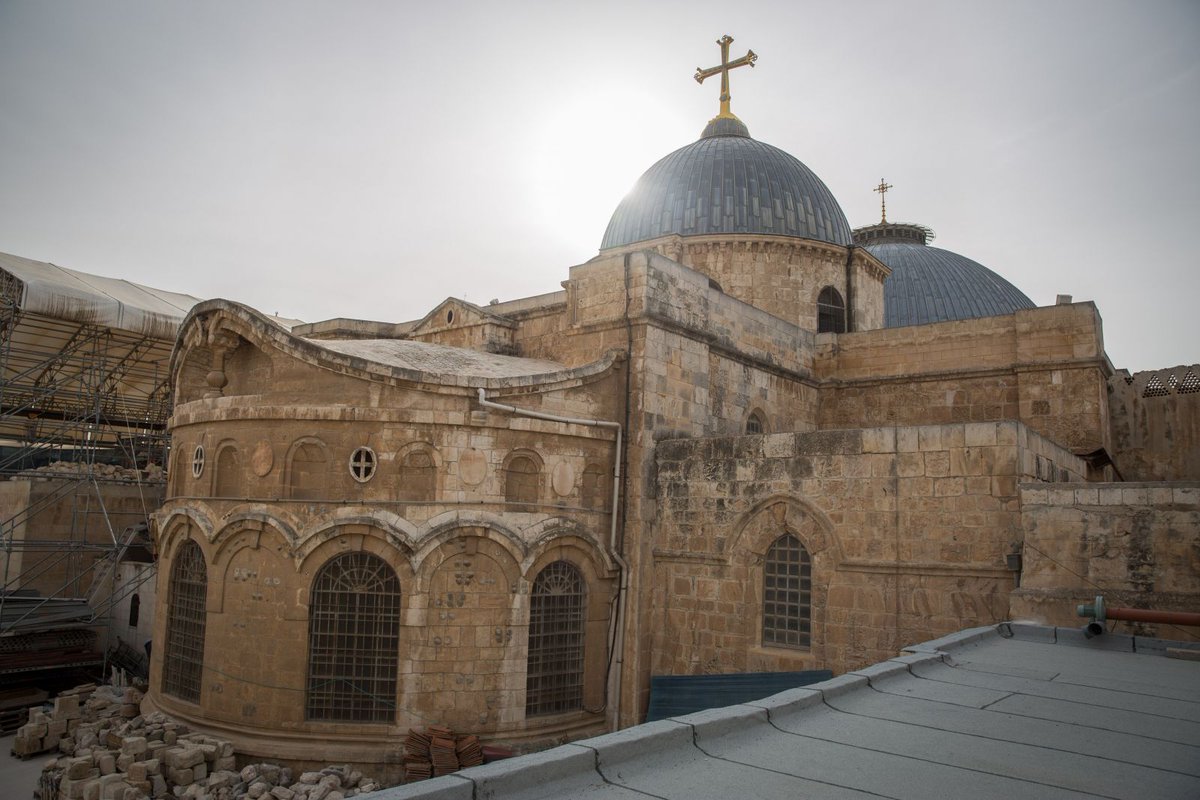
Ref: 27/2018
The Palestinian Center for Human Rights (PCHR) condemns the Israeli Municipality’s measures aiming at targeting Christian property in occupied East Jerusalem by imposing property tax “Arnona” on church-owned properties, including buildings and lands that are under lease to churches. PCHR emphasizes that those measures are part of the campaign against the Christian holy sites in the occupied city to pave the way for confiscating their property in favor for settlement projects in case the churches refused to obey this decision. PCHR again emphasizes that the U. S. President Donald Trump’s decision on 06 December 2017 to declare Jerusalem as the capital of Israel and move the U. S. Embassy to it has given the Israeli authorities the green light to expropriate the Palestinian lands, particularly in Jerusalem, for settlement projects. PCHR calls upon the international community to hold its moral and legal responsibilities and effectively intervene to stop the Israeli crimes against the Palestinian people and their property.
According to PCHR’s follow-up, at approximately 12:00 on Sunday, 26 February 2018, the Christian community unanimously declared the closure of the Holy Sepulcher Church in occupied East Jerusalem’s Old City until a further notice to protest the decision by the city’s municipality to impose property tax (Arnona) on church-owned properties. The Israeli municipality claimed that the debts on 887 church-owned properties stood at over $190 million, without specifying the time frame that the debts accumulated.
Following this consensus, 2 members of Joudah and Nusseibah Families, who have the keys of the Church and responsible for opening and closing it, closed the door of the Church until a further notice. Meanwhile, Christian tourists resented after arriving in the city to visit the Church and tomb of Jesus Christ and finding the church doors closed. The Ministerial Committee for Legislation in the Knesset expressed its intention to consider a bill that would allow the Israeli authorities to expropriate lands sold by churches since 2010 and the Israeli municipality’s intention to collect the Arnona property tax from the churches.
Following the closure of the Sepulcher Church, the Heads of Churches in the city published a statement condemning the Israeli latest steps intended to take against the church and dubbing the steps as a systematic campaign against the Christian community in the holy land. The statement reads that: “ We are following with great concern the systematic campaign against the churches and the Christian community in the Holy Land, in flagrant violation of the existing status quo.” the Statement continues: “ These actions breach existing agreements and international obligations which guarantee the rights and privileges of the churches, in what seems as an attempt to weaken the Christian presence in Jerusalem.” The statement was signed by Greek Orthodox Patriarch Theophilus III, Armanian Patriarch Nourhan Manougian, and Bishop Francesco Patton.
This closure is considered the second of its kind in the Church history as the first was on 27 April 1990 when the doors of the Church were closed for 48 hours to protest the “Ateret Cohnim” settlement Members’ seizure of the Hospitality Palace in the Monastery of Saint John, who is King of the Greek Orthodox Patriarchate, next to the Church after two weeks of the seizure and failure of all efforts to expel them. ‘Issa Misleh, Spokesperson of the Greek Orthodox Patriarchate, said that away from the two closures, the Church doors have been always open and never witnessed any closure, except suspension of prayers in times of war or earthquakes. The East and West Christian community jointly pray and worship in the Sepulcher Church that was established on the Calvary, where Jesus was crucified according to the Christians’ believes, and includes the holy tomb of Jesus Christ. Christian denomination shares the areas and quarters as identified for each inside the Church according to the Status Quo, which is a decree issued by the Ottoman Empire in 1852 and still applicable. The decree was set to preserve the rights of each sect and religious group in Jerusalem in general and in the Sepulcher Church in particular, and to identify how each sect shall use its area.
The Church of the Holy Sepulcher has a Monastery for Catholics, another for Greek Orthodox, a third for the Latin and a fourth for Armenians. As for the Copts, they have a Monastery and Church of St. Anthony (Deir Mar Antonios) established outside the Church of the Holy Sepulcher. Moreover, Monastery of the Sultan, which is located on the roof of the Church of St. Helen, is for the Ethiopian Orthodox while the Syriac Orthodox performs their prayers according to the Status Quo in Monastery St. Mark, which is a temple for Armenians near the Holy Sepulcher. The decision to close the church until a further notice aims to force the Israeli municipality to withdraw its decision of imposing taxes estimated at hundreds of millions of dollars because of the church’s religious status among the Christians who visit it from all over the world. The property of the Christian church are around 32% of the Old City’s area in East occupied Jerusalem. In addition to the prayer and worship places, this percentage includes about 130 institutions, 10 schools, 4 hospitals and other estates.
PCHR condemns the Israeli government’s latest measures in occupied Jerusalem, falling under its policy to make a Jewish majority in the city and change its character. PCHR reminds the international community of the Israeli forces’ violation of the rules of the 1949 Fourth Geneva Convention relevant to Protection of Civilians in Times of War and Security Council’s Resolutions, mainly Resolution (2334) on 23 December 2016 that emphasizes the Israeli settlements have no legal validity on the oPt, including East Jerusalem.
In light of the above, PCHR: